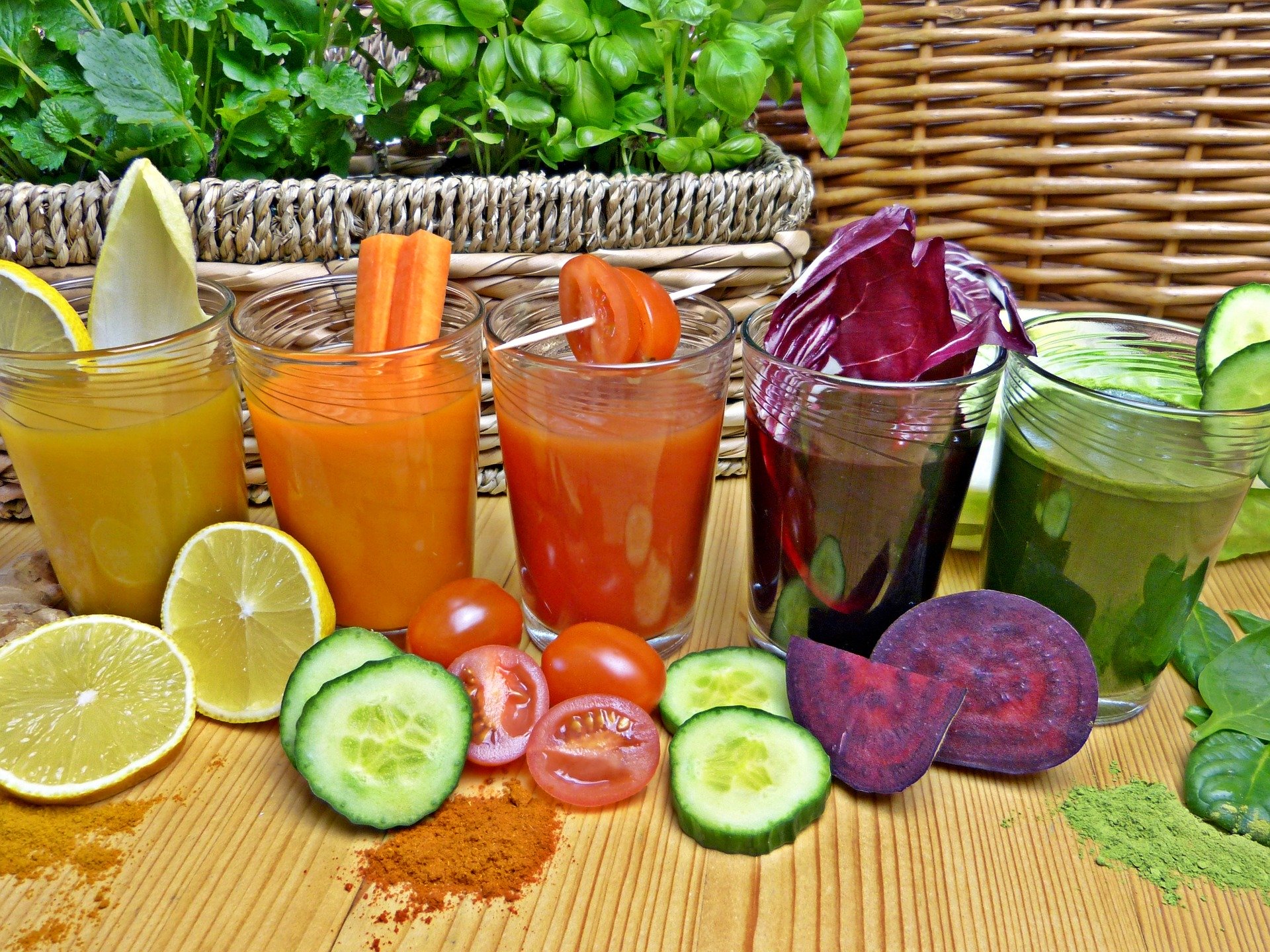Diet Cleanses and detox continue to be popular as a dietary weight loss option. And why not? They come with lots of promising and sexy results that people gravitate towards. The front line of these benefits is “quick”, “easy”, and “weight loss”. That’s the bait, and it’s doing a great job luring people.
However, there’s an underlying and uncomfortable truth beneath all the attention and glee it generates. And that is, over-promising and under-delivering. In most cases, not delivering any results at all. It gets worse when it leads to dire health consequences like the loss of energy as a result of some pretty drastic measures.
Truth vs Hype
The hard truth about these over-hyped cleanses is that they aren’t 100% effective, and most times, they are useless. Yep, you read that right. Now that’s uncomfortable to hear.
For one, these diet cleanses don’t have any solid scientific backing. They are standing on assumptions awaiting verification. So far, the results don’t look good.
The fundamental idea behind diet cleanses is to temporarily eliminate a particular class of food from the body system – mostly solid foods. This means that you will be introducing new classes of food that might be foreign to your body while quitting your usual diet. The new entrant diet can also be a food supplement or just a different class of food. Typically, you will be replacing your solid foods with less solid counterparts like vegetables and, generally, liquids.
What about detox waters and drinks? Different sides of the same coin. Infused with fruits and herbs, detox waters and drinks and carry the same claims. They don’t work. In fact, you can save a boatload of money and get the same results from drinking plain water.
Regardless of whether a detox diet has you eating (or not eating) and drinking some concoction, they all promise to rid the body of accumulated toxins. How? By giving your overworked digestive system rest and allow it to heal, leaving you to feel rejuvenated.
Now the big “what’s in it for me?” question is that they promise to help you lead a healthier lifestyle and, more importantly, lose weight.
Weight loss is a global topic, and in the 21st century, it skyrocketed further. Since a sizable portion of America’s population is suffering from obesity and elsewhere in the world, this promise makes the detox diet sell faster.
Why a Diet Cleanse is Pointless
The sheer fact that your body detoxifies itself spontaneously makes every claim by diet detox proponents invalid. The body is a unique system that handles a lot of things on its own. It detoxifies itself. Naturally. Every day.
Your body’s digestive system, kidney, liver, colon, and lungs are responsible for detoxifications. We dispose of toxins via urine, stool, and simply breathing.
Your kidneys take responsibility for filtering your blood and eliminating toxins from it, which you then pass off the via urine.
Your liver filters toxic substances in the food you consume daily and stops them from gaining access to your bloodstream. And if they do by chance, your kidneys are playing backup.
Your colon contains bacteria that produce both healthy and unhealthy chemicals, and works to send toxins out of your body via your stool.
Although not part of the digestive system, your lungs also filter toxins out of the what you inhale. What you breathe and eat is important for the health of your lungs.
Unless these autonomous systems are not functioning in part or in whole, your body is continuously detoxing; else, you would have died of excess toxins before now. This makes cleansing irrelevant and dangerous as well.
Why a Diet Cleanse Could be Dangerous for your Health
Given that diet cleanses require you to fast, eliminate foods completely, or consume concoctions with questionable ingredients, those factors alone can prove quite dangerous.
In each scenario, you’re at risk of losing valuable vitamins and minerals your body needs to function normally. In others, especially in the case of colon cleanses, the solutions often cause cramping, bloating, diarrhea, nausea, and vomiting. All can lead to dehydration. The cure is worse than the disease, assuming there’s a problem in the first place.
Let’s use the example of a cleanse that is meant to last between 7 days and a month. During this period, you subject your body to the starvation of some of its basic nutritional needs like carbohydrates. Carbs aren’t evil and in fact, necessary for energy. If you exercise regularly, you are restricting your body of the energy need to fuel a workout. How can that be good?
What you end up seeing is people losing weight within that detox window where they are starved of certain nutrients and testifying it’s working. On the contrary, they’re starving and losing weight by putting themselves in a calorie deficit, and not the workings of a detox diet.
Furthermore, a plan that makes you lose weight at the expense of your energy is hardly sustainable as most people revert to their usual diet of unhealthy foods after 2 weeks. Consequently, the weight lost returns twice as much. Truth is, most people often consider detox plans after an eating extravaganza that leaves them feeling bloated, and, well, gross.
A Better Solution
Do we overwork our bodies natural filtration system from time to time? You betcha.
Does that cause them to revolt? Sometimes.
In cases like this, you should cut back on the foods your body struggles to filter and digest. Think fried, overprocessed, chemical packed foods. Your body can use the break. Instead, consume more vegetables and fruits to provide your body with fibers that aid digestion. Don’t forget about your lungs either. Continued exposure to second-hand smoke, dust, and strong toxic fumes can compromise your lungs.
Before you look to embrace these questionable diet cleanses and detox plans, especially if you’re feeling unhealthy or potentially toxic, seek medical help from an expert.
Alternatives for Weight Loss
If you are eyeing a detox diets for the purposes of weighting loss, consider doing the following instead;
Consume more Protein: Consider adding more proteins to your meals if you can’t do without fats and carbohydrates. Proteins help you feel full and prevent you from consuming more. Proteins should always be part of a balanced diet.
Avoid Late Night Snacks: You can quit those frequent midnight trips to the kitchen to snack. Those after dinner snacks should be off-limits or curbed if you want to shed some pounds. Plan your dinner and let it fall between a defined window. Close the window afterward, and move on.
Drink More Water: Many times, thirst can be confused for hunger. As a result, we go for food first when really a glass of water will do. Food has calories, water does not, so you can see where weight gain happens. Try drinking more water and, most importantly, before meals. Generally, drinking copious amounts of water daily (the recommended 15.5 cups for men and 11.5 cups for women) is adequate. Besides, water helps flush out toxins sticking in your colon, so water is a natural detoxifier.
Reduce Portion Sizes: I’ve said more than once that portion sizes are out of control. It’s an unseen culprit in weight gain. If you’re not exactly sure what a portion size is, then you’re grossly underestimating how much you actually eat. It’s going to be hard at first, but if you cut back slowly, the change won’t be so noticeable. With time, you’ll get used to the smaller rations. Using smaller plates can do the trick. If you fill up a small plate, you give yourself the illusion that you’re eating at the same capacity. This works all the time.
Never Skip Breakfast: If you’ve heard that skipping breakfast will make you lose weight, well, that’s not true. The reverse is the case. When you skip breakfast, you heighten your hunger pangs, and when you want to finally eat at noon, you will want to compensate for the loss. In the end, you’ll find yourself eating more than usual, which is not healthy for your weight loss journey. Instead of skipping breakfast, try eating light. This way, you won’t be compelled to reward yourself at noon with a huge plate.
Conclusion
As diet cleanses continue to grow in global prominence and indulgence, people tend to deviate from the right channels to seek an easy fix to health challenges. With the bounty of false promises of diet cleanse, which includes; weight loss, relief from constipation, renewed energy, cleaner body system, and total positive well-being, people easily hop on the diet detox bandwagon.
But the record must be set straight. It’s not all rosy with diet cleanses when it comes to the benefits they offer, and factually, they are not viable or result-driven. Instead, they are capable of producing negative results for those seeking a quick diet fix.

